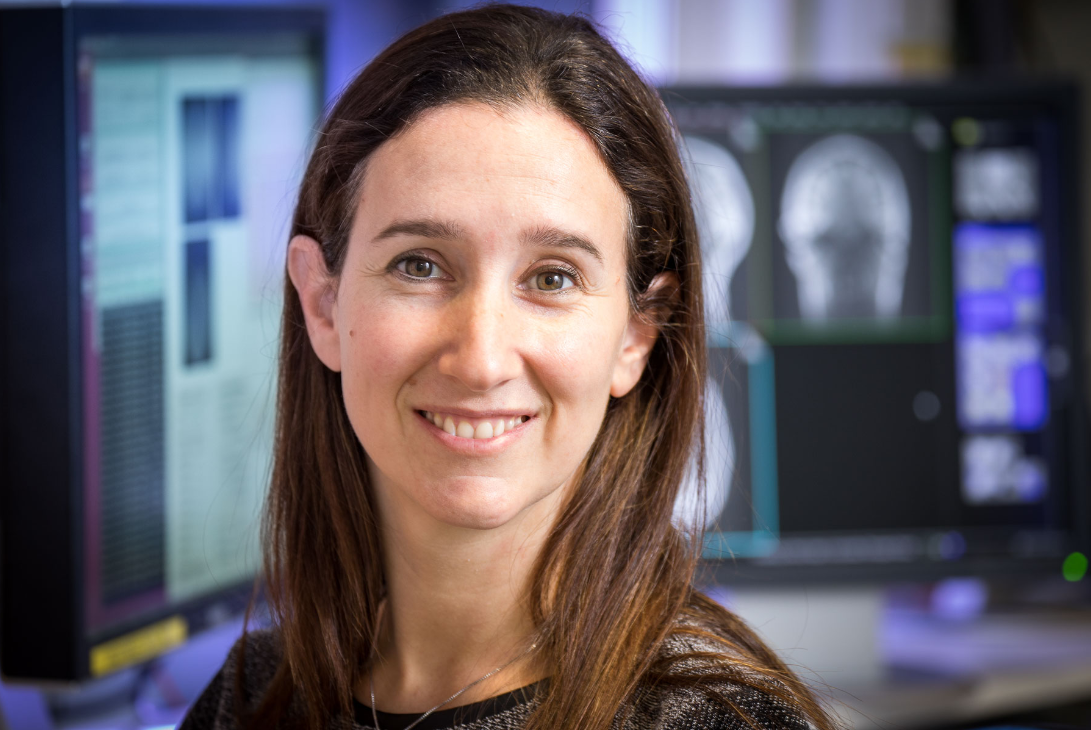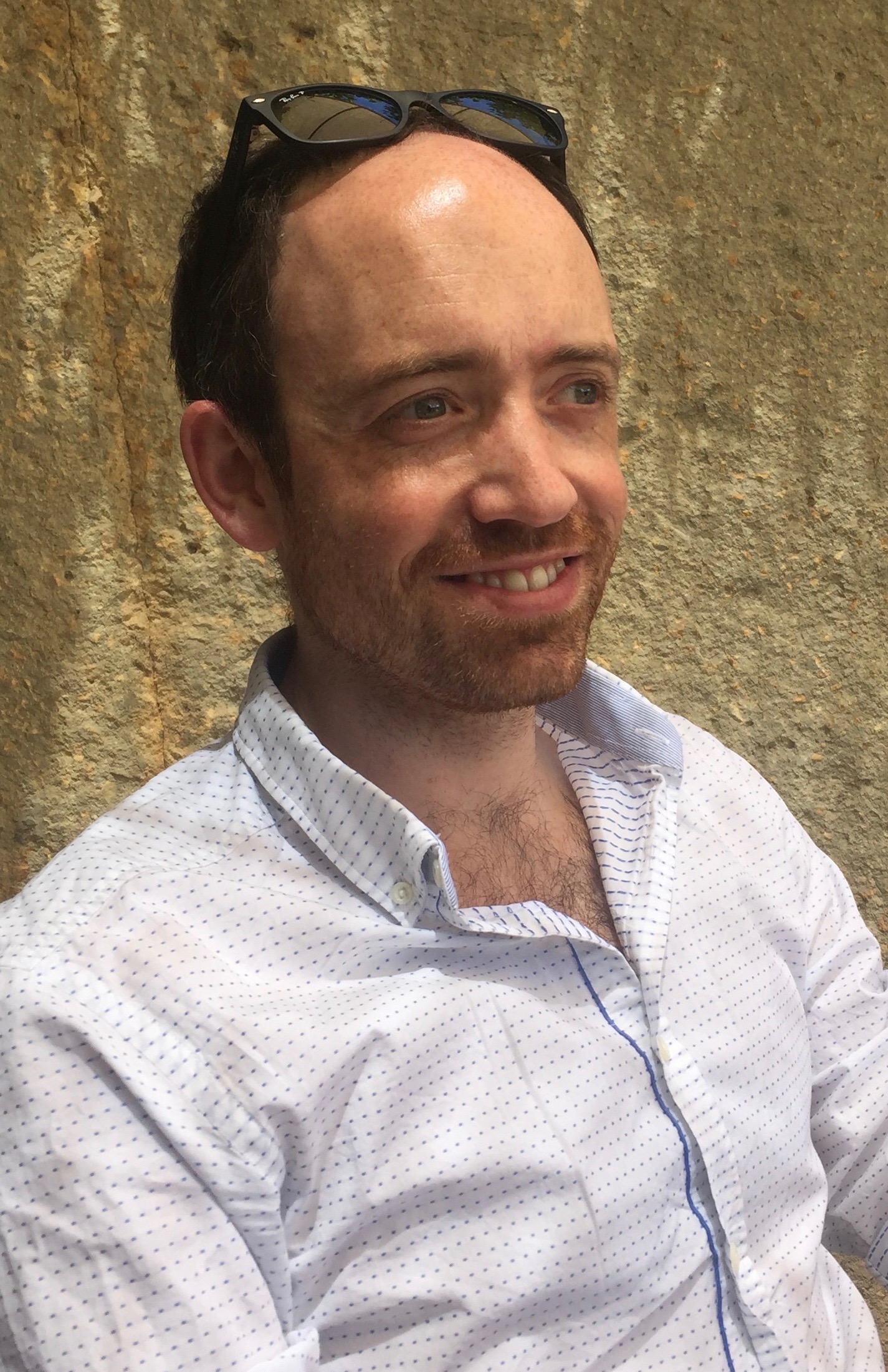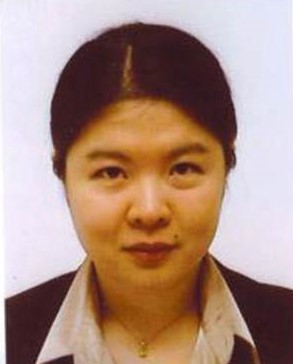BMA Foundation for Medical Research – grant winners 2024
-
Kathleen Harper to assist research into vaccine hesitancy



Dr Eva Galiza
St George’s University of London
EQUIP: evaluation of vaccine hesitancy amongst midwives
The EQUIP study (Evaluation of vaccine hesitancy amongst midwives by QUestionnaire and Impact assessment of educational material to support vaccine uptake during Pregnancy) is generously funded by the Kathleen Harper BMA award. This study will help improve the knowledge, confidence, and practices of midwives delivering maternal vaccination with the aim to increase vaccination rates among pregnant women.
Vaccine hesitancy among pregnant women as well as midwives in the United Kingdom is of significant concern. Midwives, as frontline healthcare providers, play a crucial role in promoting vaccination to protect pregnant women, newborns, and the wider community from vaccine-preventable diseases.
Various factors contribute to vaccine hesitancy among this group, including misconceptions about safety and efficacy of maternal vaccination, personal beliefs, and systemic barriers within the healthcare system.
We acknowledge the crucial role of midwives in promoting vaccination during pregnancy and seek to equip them with the necessary tools and resources to effectively communicate the importance and safety of vaccination to expectant mothers. This study will evaluate the needs of midwives and provide evidence-based education and training programmes on vaccines, including information on safety, efficacy, and the importance of vaccination.
Resources and toolkits will be developed to provide midwives with up-to-date information and support in promoting vaccination. Additionally, we aim to create supportive environments within healthcare settings where midwives feel comfortable discussing their concerns and seek guidance to build confidence in recommending vaccines to pregnant women.
Find out about the winners of the 2024 grant round and their projects by clicking through the tabs below.
-
TP Gunton grant to assist research into public health relating to cancer



Dr Sandhya Trichinopoly Krishna
Alder Hey Children's NHS Foundation Trust
The Combat Project: Core post operative morbidity set for paediatric brain tumours
Brain and other central nervous system tumours are the most common cause of cancer death in children under 18. The disease and its treatment can have devastating complications with lifelong consequences for patients. Surgery is the first line treatment for most patients.
To make the best use of research and clinical studies of surgery for brain tumours in children we need to be able to compare the complications or harms associated with them. We can’t do this now because different studies report different harms or measure them in different ways. Existing tools for measuring these harms after an operation don’t work in children with brain tumours because they underestimate the importance of a life changing complication or disability.
This study will solve this problem by agreeing which harms are the most important and should be reported in all research and clinical studies of surgery for brain tumours in children. One way to do this is by creating a ‘core outcome set’ (COS) which is a list of harms that should be reported in all research and clinical studies. This will harmonise the way these harms are reported, enabling comparison across different trials, studies and clinical services.
-
Helen H Lawson grant for research into end of life decision making




Dr Sarah Mills and Dr Joanne Cecil
University of St Andrews
Improving access to and delivery of community care around death
Community care at the end of life is fragmented and difficult to navigate, particularly outside of core hours. Information is siloed and divided, with disjointed care coordination. Patients in their last year of life, and their carers, are vulnerable and often don’t know how to access help. Clinicians struggle to find the information they need in a timely way. We aim to identify what is important to patients, carers and clinicians in designing and delivering new models of care coordination for community palliative care. The models we seek to evaluate include a ‘single point of access’ intervention and a digital care coordination system for care around death.
This qualitative study will involve patients, carers and health professionals. We will preferentially seek to recruit people with protected and marginalised characteristics and will undertake a detailed stakeholder analysis. Data will be collected using semi-structured interviews, focus groups, and co-design workshops, which will be informed by our interview Topic Guide and will be recorded and transcribed for analysis. Data will be analysed using Reflexive Thematic Analysis (RTA).
This project will inform a larger programme of mixed-methods research that aims to design and implement a bespoke care coordination system that improves care pathways and experiences of care at the end of life.
-
Margaret Temple grant to assist research into schizophrenia



Dr Matthew Nour and Dr Robert McCutcheon
Oxford University
Testing the cognitive mapping hypothesis of psychosis: a pharmaco-MEG study
The ‘aberrant cognitive mapping’ hypothesis of psychosis states that abnormalities in neural excitation-inhibition balance (E/I) impair the brain’s ability to form stable representations of the world (‘cognitive maps’), giving rise to symptoms such as conceptual disorganisation and delusions. To date, testing the hypothesis has relied on complex tasks that are neither clinically valid nor scalable. We have honed an experimental approach to index cognitive map representations in a manner that is clinically valid, acceptable to patients, and holds translational potential. Our approach combines language-based naturalistic tasks (verbal descriptions, audiobooks), functional neuroimaging, and computational tools including multivariate neural decoding, neural event boundary segmentation, and novel ‘semantic trajectory’ algorithms based on artificial intelligence language models. Here, we will apply these tools to newly acquired behavioural and magnetoencephalography data from patients with schizophrenia (n=30) and matched control participants (n=30), as part of a randomised placebo-controlled trial of memantine (NMDA-receptor modulator) for cognitive impairment. We will test whether cognitive mapping signatures are boosted by NMDA-receptor modulation (a causal E/I manipulation) and impaired in schizophrenia. Our results will illuminate the link between neurobiological perturbations and symptoms in schizophrenia, where such knowledge has a potential to guide theory-driven development of new interventions.
-
Vera Down grant to assist research into neurological disorders





Dr Christopher E McMurran and Dr Jonathon Holland
Department of Clinical Neurosciences, University of Cambridge
DNA methylation age and remyelination in multiple sclerosis
In people with multiple sclerosis (MS), the immune system attacks myelin (the protective coating around nerve cells) eventually leading to nerve cell loss. Myelin is naturally repaired (remyelination) but this becomes less effective in middle and older age, associated with progressive disability. Is this an inevitable consequence of ageing, or can we intervene to boost remyelination across the lifespan?
Our project will study the association between biological age and remyelination in people living with MS, aiming to identify reasons for remyelination failure and novel approaches to treating people with MS. “Biological age” captures the idea that some people seem to age faster than others.
We will use samples from two existing studies. The first study (ARMOUR) collects data on remyelination in people with MS from childhood to old age. The second study (CCMR Two) is a clinical trial, in which participants are given a drug (metformin) aiming to slow biological ageing. We will measure biological age with DNA methylation – chemical patterns on DNA that change with age – then test how this affects remyelination and nerve cell loss.
Identifying a connection between biological ageing and remyelination would pave the way for novel therapies that target biological age in MS.
-
Dawkins & Strutt grant to assist research into eye health




Dawkins & Strutt
To assist research into eye health
Mr Alasdair Warwick, University College London and Dr Abraham Olvera Barrios, Moorfields Eye Hospital NHS Foundation Trust
Safe, Accurate, and Equitable Prognostic Models for Diabetic Retinopathy using Imaging, Genetics, and Linked Electronic Health Records
Diabetic retinopathy (DR) can develop years before individuals with diabetes notice symptoms or seek hospital eye services (HES). Current prediction models, created around 30 years ago, are inadequate for accurately estimating the risk of sight-threatening DR and cardiovascular mortality, especially for diverse ethnic and sociodemographic groups. Data on people with diabetes (PWD) is often siloed across different healthcare systems, hindering comprehensive analysis.
This project aims to integrate ophthalmic electronic medical records (O-EMR) with a substantial dataset from over 175,000 PWD in one of the most ethnically diverse Diabetic Eye Screening Programmes in North East London. Building on previous work, the project will enhance prediction models using advanced artificial intelligence for image analysis, genetic data, and linked health records. By incorporating O-EMR, the project seeks to refine these models to better identify those most at risk of vision loss and cardiovascular disease, improving referral accuracy to HES and timely interventions.
These enhanced models will be validated using large datasets from the US ETDRS and UK Biobank cohorts. The project's outcomes aim to provide timely risk assessments, improve NHS resource allocation, and enhance health and vision outcomes for PWD, with significant national and global healthcare implications.
-
Doris Hillier grant to assist research into rheumatism and arthiritis




Professor Alexander MacGregor
University of East Anglia
Alzheimer’s risk in inflammatory arthritis: a predictive biomarker study
This project aims to investigate the potential link between rheumatoid arthritis (RA) and Alzheimer's disease (AD) by analysing blood-based biomarkers associated with AD risk within the Norfolk Arthritis Register (NOAR). Established in 1990, NOAR includes over 5,500 patients with inflammatory arthritis who have been tracked over time. The study employs a nested case-control design to compare individuals who developed AD with those who did not, matched for age, disease onset, and other demographics. Biomarkers such as amyloid-beta, phosphorylated tau (pTau181), Glial Fibrillary Acidic Protein, and Neurofilament Light Chain will be measured in blood samples taken at baseline and at 5 and 10 years post-disease onset. By assessing the prevalence of these biomarkers at different stages of RA and their relationship with disease activity, the study aims to identify individuals at higher risk of AD. This research could lead to early interventions and personalized care strategies, improving cognitive health outcomes for RA patients.
-
H C Roscoe grant to assist research into the elimination of the common cold and/or other viral diseases of the human respiratory system






Dr Fatemeh Moheimani, Manchester Metropolitan University and Dr Laurence Pearmain, Manchester University
EVs-microRNAs: Biomarkers predicting influenza-induced asthma exacerbation
Asthma patients have sensitive airways hence difficulty in breathing. Flu infection, making it harder for them to breathe (asthma attack) causing hospitalisation and death. The outer lining layer of the airway is called epithelium, the first protective barrier between flu virus and lungs’ internal environment. The airway epithelium is a great resource for biomarkers, predicting asthma attack. However, accessing this layer in patients is invasive. Epithelial cells secrete cargoes (extracellular vesicles: EVs) carrying different substances, that represent accessible biomarkers for prediction of flu-induced asthma attack. We aim to answer whether biomarkers in secreted cargos from epithelial cells (with easier and quicker access) represent biomarkers in cells from asthma patients after flu infection.
To achieve our goals, we will evaluate specific biomarkers (microRNAs), which switch on/off the genes responsible for the epithelial damage, after flu infection. We will obtain epithelial cells from asthma patients in the clinic. In the laboratory, we will grow cells in similar conditions to the human body and infect them with flu virus. We will then compare the microRNAs in cargoes secreted from the cells with microRNAs expressed inside the cells. Our research will potentially detect specific and accessible biomarkers to predict asthma attack after flu infection.
-
Josephine Landsell grant to assist research into heart disease




Ms Shagorika Talukder
Royal Papworth Hospital NHS Foundation Trust
Rheumatic Heart Disease Valve Pathology: The Missing Link in Progress to Novel Therapeutics
Rheumatic heart disease (RHD) is a chronic disease of heart valves that remains a major cause of death and disability globally. Much about how the disease develops remains poorly understood, limiting the development of new vaccines, treatments, and diagnostic tests. There are limited studies on the processes underlying heart valve damage, with important shortcomings including scarce description of the patients, methods, and small sample sizes.
Consequently, using my skills as a cardiothoracic surgeon and with supervision from Dr Tom Parks who is an expert in RHD, we will prospectively collect valve tissue samples from well-characterised children and adults who need surgery for RHD in Pakistan, where the disease is a major public health concern. Our aim is to establish a robustly characterised contemporary collection of rheumatic valve tissue samples to study in detail the processes leading from 'Strep A' infection to heart valve inflammation, initially utilising classical histopathology and immunohistochemistry. Following transfer of the samples to London, we would utilise contemporary approaches including studying gene expression, antibodies and other proteins within the valves.
We expect our research to inform on new aspects of how and why RHD develops, providing valuable data for the development of new treatments and safe, effective vaccines..
-
Pushpa Chopra grant to assit research into women's health and wellbeing




Dr Jonathan Quinlan and Dr Kanta Kumar
University of Birmingham
Co-designing An Accessible Route to Exercise Knowledge To Improve Wellbeing and Health in Ethnic Minority Women (CONNECT-WELL)
Physical activity and exercise are vital to maintain health across the lifespan and reduce the onset of many preventable diseases. Muscle weakness is also associated with an annual NHS cost of £2.5billion, with muscle strength being vital for everyday tasks and maintaining independence. Therefore, regular engagement with strengthening exercise in addition to physical activity is important for maintaining overall health.
Engagement in physical activity is low in South Asian women with only 50% classed as physically active and only 33% engaging in regular strengthening exercise. Aside from physical health, inactivity significantly impacts mental health and wellbeing in South Asian women, with worse life satisfaction, happiness and worthwhileness compared to South Asian men when physically inactive. Our recent study suggests that cultural gender roles affect exercise engagement and South Asian women were unaware of the importance of strength-building activities or the NHS guidelines. Social media, rife with health misinformation, was the main information source and therefore to drive actionable change, new routes to disseminate evidence-based knowledge and information for South Asian women’s must be sought. Therefore, the ConnectWell study will work collaboratively with South Asian women to co-design new tools to share vital exercise knowledge in the South Asian public.
-
J Moulton grant to assist research into stem cells through clinical trials






Professor Lyle Armstrong and Professor David Deehan
Newcastle University
Mesenchymal Stem Cells from haemarthrosis fluid to enhance anterior cruciate ligament repair
Anterior cruciate ligament injuries can represent a career ending event in the life of an athlete and are a principal source of early knee arthritis in the active population. Reconstructive techniques have evolved but require for transplantation of tissue into a hostile avascular environment. As such our work, supported by a generous grant from the BMA Foundation (Moulton) will enable work to determine the role of stem cells, derived from the knee at time of injury, to be a key factor in the ultimate manufacture of a host driven living graft construct offering the promise of being able to respond beyond surgery to the mechanical and biological environment of the recovering athlete.
-
The James Trust grant for research into asthma



Dr Imran Howell
University of Oxford
Prednisolone treatment for asthma attacks in people on anti-IL5 therapy (BOOST)
Oral steroids have been the guideline recommended treatment for asthma attacks for over 30 years. However, steroids have extensive side effects so rationalising their use is important. We hypothesise that a biomarker of lung inflammation, called exhaled nitric oxide (FeNO), can identify the patients who will have most clinical and anti-inflammatory benefit from oral steroids when they have a breakthrough asthma attack on injectable biologic therapy.
BOOST was a prospective observational study of 60 adults with severe eosinophilic asthma established on biologic therapy presenting with an outpatient asthma attack. All participants received 7 days of oral prednisolone at attack and were followed up at 7 days, 28 days, and stable state. Clinical measures and sputum, blood, and nasal lining fluid samples were collected at each visit.
I will use the James Trust grant to compare the changes to inflammation in the sputum and nasal samples between prespecified FeNO-high and FeNO-low groups using protein analysis (Olink and ELISAs) and bulk transcriptomics. Following this study, I plan to design the first definitive, biomarker-directed, placebo-controlled trial of oral steroid treatment for outpatient attacks in biologic-treated asthma. This would establish if the harms of oral steroids outweigh the benefits in biomarker-low asthma attacks.
-
J Moulton grant to assit research into artificial intelligence innovations in healthcare, and potential impact to deliver new treatments and/or manage disease





Mr Areeb Mian and Dr Adil Lakha
University of Oxford
Radiomics in Colorectal Liver Metastasis: Artificial Intelligence to Predict Histological Growth Patterns of Colorectal Liver Metastasis from Cross-Sectional CT and MRI Imaging
Colorectal cancer is prevalent in the Western world. Up to 30% of these patients develop spread of cancer from the colon to the liver (metastases). Surgery can extend survival for 40-50% of selected patients with colorectal liver metastases but predicting who will benefit is challenging. Currently, the metastatic liver tumour growth pattern under a microscope can tell us whether a patient is likely to have a 75% or 20% chance of surviving 5 years after surgery. These growth patterns could also inform us of the likelihood of response to anti-cancer medications. However, these patterns can only be assessed after surgical removal of the tumour.
Our project aims to use artificial intelligence (AI) to identify these histological growth patterns from MRI and CT scans before surgery by detecting features in the scans invisible to the naked eye. Utilising data from two large hospitals, we will develop AI models to predict tumour growth patterns and create tools for automatic liver tumour identification in scans.
This project represents a crucial step toward a tool that can accurately predict tumour growth patterns preoperatively. Such a tool will enable surgeons and oncologists to tailor treatments to individual patients, minimising unnecessary side effects and optimising the effectiveness of early interventions, thus paving the way for personalised care plans based on individual prognoses.
-
BMA Foundation for Medical Research
For more information, please get in touch:
Corporate development, British Medical Association, Tavistock Square, London, WC1H 9JP
Tel: 0207 383 6341
Email the team: researchgrants@bma.org.uk



